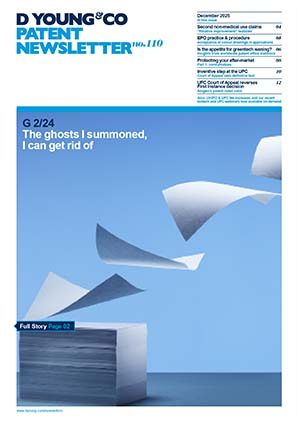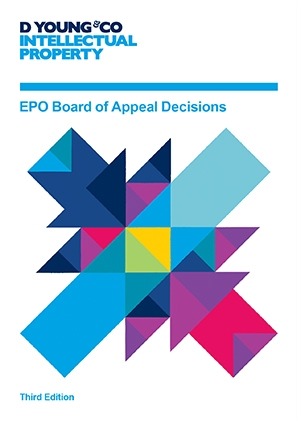Chinese patent rights: first CNIPA administrative adjudications on patent infringement
The “China Patent Law 2020” and “Measures for Administrative Adjudication of Major Patent Infringement Disputes” (the measures), both came into force on 01 June 2021. Under this new administrative patent enforcement route the China National Institute of Patent Administration (CNIPA) is empowered to hand down adjudications on patent infringement disputes.
At a first glance it appears that the new legislative provisions will reform the bifugated system for handling validity and infringement disputes in China into a single patent dispute forum at the CNIPA. In this article we will look into CNIPA’s first batch of patent infringement adjudications recently issued in July 2022, and discuss the practical implications on enforcement of patent rights in China.
Changes to administrative enforcement introduced by the amended China Patent Law
The administrative route of IPR enforcement has a long history in China, and the system has achieved considerable success in combating trademark, copyright, design and patent counterfeiting. However, it proved to be difficult for the local administrative authorities, such as provincial IP offices, to handle patent infringement disputes due to relatively restricted power of investigation under the previous versions of China Patent Law.
The amended Article 69 of the Patent Law provides the administrative authorities with the power of inquiry and investigation, on-site inspection, and product inspection in the procedures of dealing patent infringement disputes. In addition, the newly-added Article 70(1) explicitly provides that the patent administrative department of the State Council (the CNIPA) may handle patent infringement disputes that have a significant nationwide effect, at the request of the patentee or interested party. The CNIPA also has in place the new administrative regulations ”Measures for Administrative Adjudication of Major Patent Infringement Disputes”, to establish the implementing rules for the new centralised forum as a more convenient and efficient administrative protection relief option for patentees.
Factual background of the disputes and CNIPA’s rulings
The CNIPA decisions were issued in response to two requests for administrative adjudication, filed by Boehringer Ingelheim (Boehringer) against two generic drug manufacturers, Guangdong HEC Pharmaceutical Co Ltd. and Yichang HEC Changjiang Pharmaceutical Co Ltd (HEC companies), concerning the same patent No. ZL201510299950.3 (the disputed patent) related to diabetes drug Linagliptin. The alleged infringing acts involved making, using, selling, and offering to sell the generic version of Linagliptin.
The CNIPA held that the adjudication proceeding would not be stayed, since the parallel litigation before the Shanghai IP Court was not the same disputed patent. The CNIPA also considered that Article 75(5) of the Patent Law only exempts acts from patent infringement which are required by obtaining administrative approval for drug marketing. After investigating the case and conducting cross-examination of the evidences, the CNIPA concluded that patent infringement was established and awarded remedies similar to injunctions, which stop the HEC companies from further manufacturing, selling, or offering to sell the generic drug. The adjudication also specifically ordered the HEC companies to remove the generic drug from the official platforms for medicine supply.
Practical implication of the administrative cases
The two administrative cases were concluded within the time limit specified by the measures, that is, four months after the stay of proceeding was lifted. They are regarded as model cases for demonstrating the CNIPA’s capability of handling patent disputes efficiently, not just on technical comparison for deciding patent infringement, but also legal issues such as activities exempted from patent infringement. The cases therefore exemplify that the new CNIPA adjudication route is a feasible option for patentees to enforce their lawful right and stop infringement in a timely fashion.
The CNIPA did not rule on validity of the disputed patent so there is no fundamental change to the long existing bifurcated system for infringement and validity dispute resolution in China. As CNIPA and IP courts have already been conducting joint trials to handle validity and infringement disputes for the same patent, the CNIPA in future may consider consolidating the new adjudication proceedings with its invalidation proceedings to further enhance the efficiency of administrative patent enforcement, such as avoiding delay caused by stay of proceedings.
Corresponding UKIPO procedures
Compared to the UK practice, the UKIPO procedure for requesting patent infringement opinions and the CNIPA adjudication route look very much alike in many aspects. The opinions issued by the UKIPO under Section 74A of the Patents Act, which may address both infringement and validity questions, are similarly non-binding and relatively quick to obtain – usually within three months. The UKIPO opinions (and submissions filed in the procedure) will also be open to public inspection.
Nevertheless, the UKIPO procedure does not grant injunctions based on their findings of infringement. These reasons account for the more passive roles typically played by the UKIPO opinions, such as for negotiation of a settlement or for deciding whether to proceed with full legal court proceedings.


